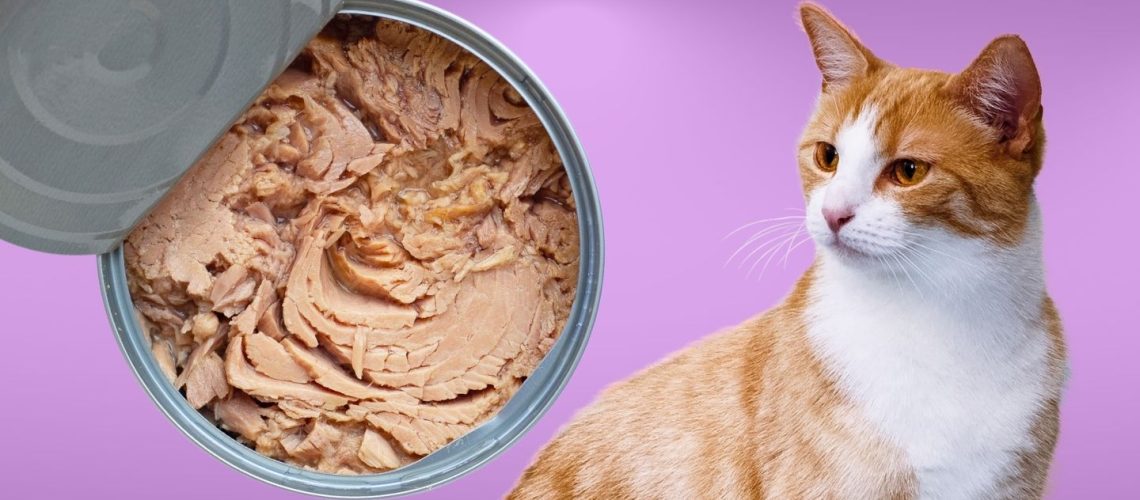Yes, cats can eat canned tuna, but it should not be a regular part of their diet. Canned tuna is not a balanced diet for cats and can cause a number of health problems if fed to them regularly. It's essential for cat owners to understand the importance of a balanced diet and the common misconceptions surrounding cats and canned tuna.
The Nutritional Content of Canned Tuna
Canned tuna, while high in protein, does not meet all the nutritional needs of cats. It lacks essential nutrients such as taurine, vitamin E, and vitamin A, which are crucial for feline health. Canned tuna may also contain additives like salt and oil, which may disrupt your cat's daily nutrient intake.
Comparison of canned tuna to a cat's dietary needs
Cats are obligate carnivores, meaning they require animal-based protein sources to thrive. While canned tuna provides protein, it lacks other essential nutrients that cats need, such as taurine – an amino acid vital for heart, eye, and brain function.
Lack of essential nutrients in canned tuna
Cats need a variety of vitamins and minerals for a balanced diet, which canned tuna does not provide. Moreover, many canned tuna brands contain added salt and oil, which can lead to obesity and other health issues in cats.
Health Risks Associated with Feeding Cats Canned Tuna
Feeding your cat canned tuna regularly can lead to numerous health problems.
Malnutrition
Feeding a diet primarily consisting of canned tuna can lead to malnutrition in cats, as it lacks the necessary nutrients to keep them healthy. Malnutrition symptoms in cats include weight loss, lethargy, and a weak immune system. Long-term malnutrition can cause severe health issues like organ failure.
Mercury poisoning
Mercury accumulates in tuna due to industrial pollution in the oceans. A cat that consumes too much tuna can be at risk for mercury poisoning. Symptoms of mercury poisoning in cats include tremors, incoordination, and loss of balance.
Allergies and sensitivities
Cats can develop allergies or sensitivities to certain proteins, such as fish. Signs of allergies in cats include itching, hair loss, and skin inflammation. If you suspect your cat has a fish allergy, consult your veterinarian for alternative protein sources.
Safe Ways to Incorporate Canned Tuna into a Cat's Diet
Feeding your cat canned tuna should be limited to occasional treats or snacks. Mixing a small amount of canned tuna with your cat's regular food can also be a safe way to incorporate it into their diet. Always be mindful of portion sizes to prevent overfeeding.
Alternatives to Canned Tuna for Cats
To keep your cat healthy, provide them with a balanced diet that consists of high-quality, nutritionally complete cat foods. Both wet and dry food options are available to suit your cat's preferences. Nutritional supplements can be considered with the guidance of your vet for cats that require additional support.
Homemade cat food recipes can also be a good alternative, as long as they're carefully formulated to meet your cat's nutritional needs. Always consult with a veterinarian before switching to a homemade cat food diet.
Frequently Asked Questions
Can cats eat tuna in oil or water?
Cats can eat canned tuna stored in water, but it's best to avoid tuna packed in oil, as excess oil can lead to health issues.
What about other types of canned fish?
Canned fish like salmon, sardines, and mackerel are safer alternatives to canned tuna, but they should still only be given as occasional treats.
How can I tell if my cat is experiencing health problems due to its diet?
Signs that your cat may be experiencing diet-related health issues include vomiting, diarrhea, weight loss, and changes in appetite. Contact your veterinarian if you notice any of these symptoms.
Conclusion
In conclusion, while it is okay for cats to eat canned tuna occasionally as a treat, it should not be a regular part of their diet. Canned tuna does not provide the balanced nutrition that cats need and can cause a number of health problems if fed to them regularly. It is essential for responsible pet owners to provide their cats with a balanced diet of high-quality cat foods to maintain their health and well-being.







